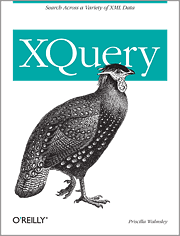fn:translate
Replaces individual characters
Description
The fn:translate function replaces individual characters of a string with other individual characters. The $mapString argument is a list of characters to be changed, and $transString is the list of replacement characters. Each character in $mapString is replaced by the character in the same position in $transString. If $mapString is longer than $transString, the characters in $mapString that have no corresponding character in $transString are not included in the result. Characters in the original string that do not appear in $mapString are copied to the result unchanged.
Note that this function is only for replacing individual characters with other individual characters, or removing individual characters. If you want to replace sequences of characters, you should use the fn:replace function instead. This function is sometimes used for translating strings between lowercase and uppercase, but the fn:upper-case and fn:lower-case functions do this more robustly based on Unicode mappings.
This description is © Copyright 2007, Priscilla Walmsley. It is excerpted from the book XQuery by Priscilla Walmsley, O'Reilly, 2007. For a complete explanation of this function, please refer to Appendix A of the book.
Arguments and Return Type
| Name | Type | Description |
|---|---|---|
$arg |
xs:string? |
the string to translate |
$mapString |
xs:string |
the string of "from" characters |
$transString |
xs:string |
the string of "to" characters |
| return value | xs:string |
Examples
| XPath Example | Results |
|---|---|
translate('1999/01/02', '/', '-') |
1999-01-02 |
translate('xml query', 'qlmx', 'QLMX') |
XML Query |
translate('xml query', 'qlmx ', 'Q') |
Query |
translate('xml query', 'qlmx ', '') |
uery |
translate('xml query', 'abcd', 'ABCD') |
xml query |
translate('', 'qlmx ', 'Q') |
zero-length string |
translate((), 'qlmx ', 'Q') |
zero-length string |
History
| Published On | Last Updated | Contributor(s) |
|---|---|---|
| 2006-06-27 | 2007-02-26 | W3C, XQuery 1.0 and XPath 2.0 Functions and Operators, http://www.w3.org/TR/xpath-functions/ |

